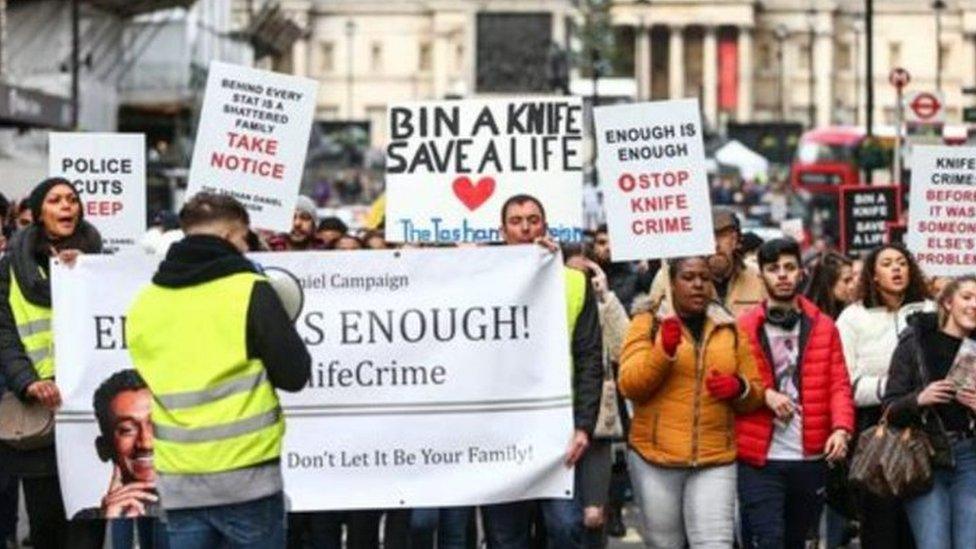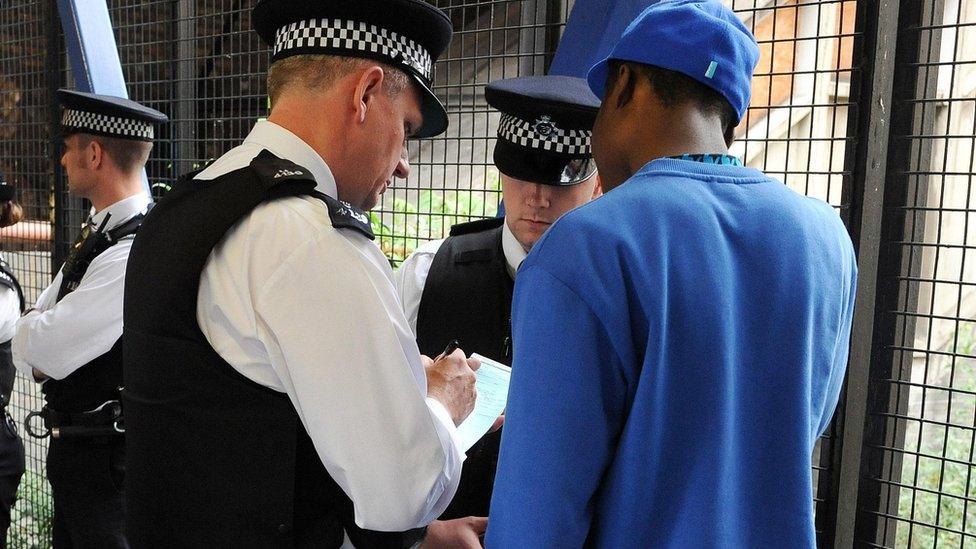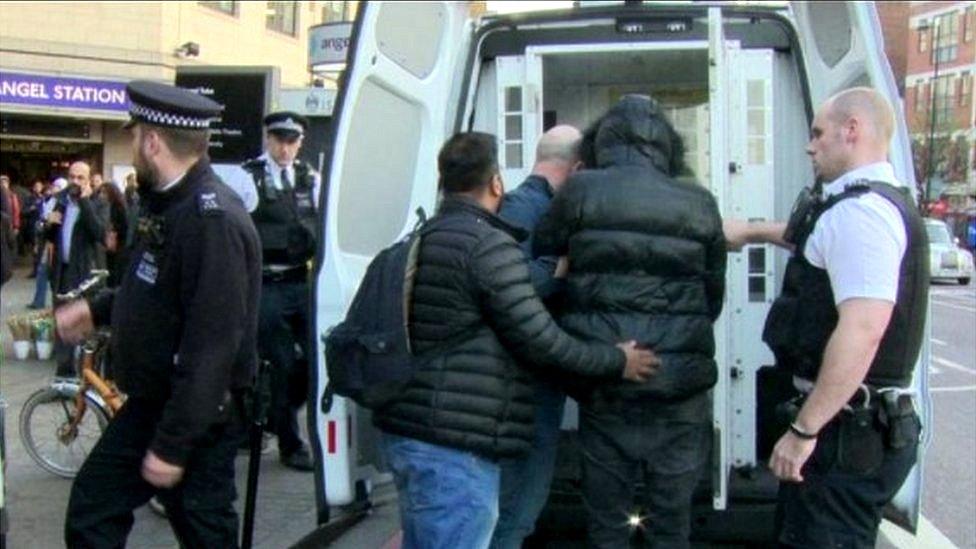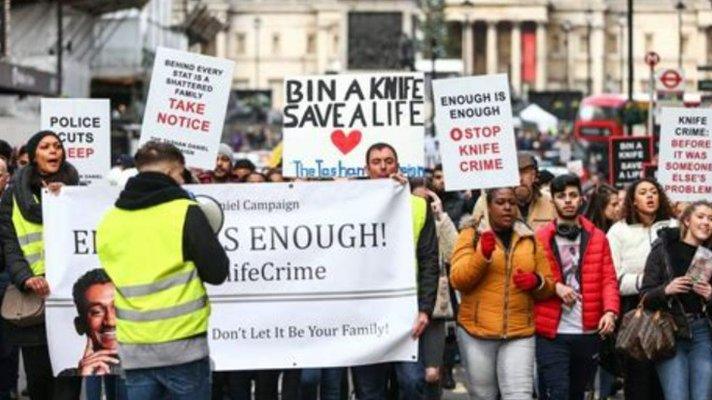Stop-and-search focus blamed for knife crime rise in London
- Published

Protests calling for action on knife crime have taken place
A focus on stop and search at the expense of neighbourhood policing has been blamed for the rise of knife crime in London, a new report claims.
The Policy Exchange report said the Met Police had an "unusual and unjustified strategy" of using stop and search in the face of a spike in knife crime.
It said it did this rather than target high-profile drug traffickers and having officers on the streets.
The Met said it used "a range of tactics to tackle violence" in London.
The report by Sophia Falkner for Policy Exchange, a centre-right think tank,, external said the number of fatal stabbings in London doubled between 2013 and 2019 despite better survival rates for victims of knife attacks.
'Unusual and unjustified strategy'
It also found London's "knife crime crisis" affected certain groups more than others - with black people nearly five times more likely to be admitted to hospital as a result of being stabbed than white or Asian people, and people under 25 accounting for more than half of hospital admissions for stabbings in London in 2019-20.
"The strategy the MPS (Metropolitan Police Service) has chosen to pursue is highly irregular when compared to other big cities, even when taking the unique challenges of policing London into account," the report said.

The Met says it seizes about 400 weapons a month through stop and search
It added that when compared with forces in Merseyside, the West Midlands and West Yorkshire, the Met had the highest rate of stop and search and the lowest for apprehending drug traffickers. It also had the second lowest rate of officers involved in neighbourhood policing.
A Metropolitan Police spokesperson said: "We very deliberately are targeting and putting more resources into areas blighted by higher levels of violence and other serious crime.
"Stop and search is just one of the tactics that helps us drive down the number of young people stabbed on our streets. It leads to the arrest of dangerous criminals, prevents crime, protects people and deters potential offenders."
Met figures show about 400 weapons are seized through stop and search each month.
The report stated that "although the policing of London presents unique challenges in terms of the complexity and scale of the task, the MPS seems to have an unusual and unjustified strategy, combining a relatively high rate of stop and search with weak community policing and targeting of high-profile criminals".
However, in the report's foreword, former Met Police Assistant Commissioner Sir Mark Rowley said that while the Met does have "deteriorating detection rates" for knife crime, and has put fewer resources into community policing and proactive prosecution of drugs gangs, this was not an argument against stop and search, which he described as a "vital tactic the commissioner was right to increase".

The report said more attention should be placed on young black men having a higher chance of being a victim of knife crime
The report also said a recent fall in knife crime was attributable "almost entirely to lockdown measures" and the Met needed to "prepare for an upswing in violent crime, before knife crime spirals out of control again".
The report also said that the focus in the media should be on what it called the "real injustice", that young black men had a higher chance of being victims of knife crime and were more likely to die on the streets of the capital.
- Published9 October 2021
